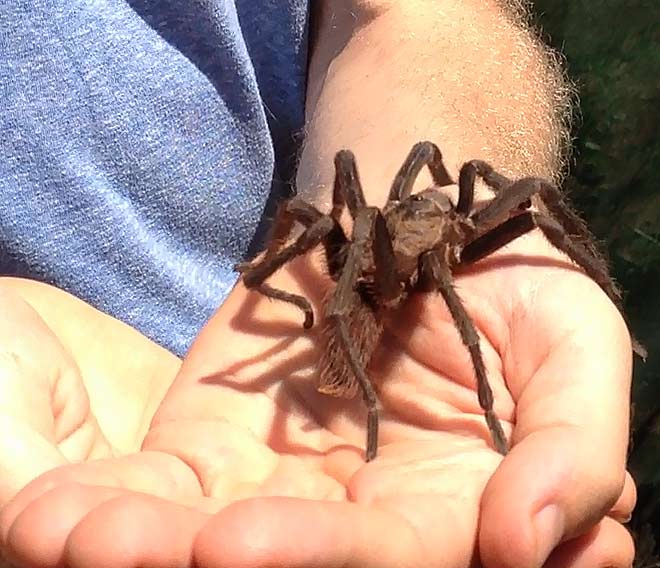Using Tarantulas for Pest Control
We are Using Tarantulas to Help Us Control Unwanted Insects
The downside of having an enclosed space for growing plants is that not many birds can get inside to help us control the bugs that inevitably do get in there.
We need nature’s helpful predators on our side, and since we’ve created a protective bubble, I’ve been trying to think of other ways to get them where we need them.
I happen to love spiders, so at any opportunity, I will pick up and play with a tarantula. I was taught how to do this by my cousin Terry, who assured me that they won’t and don’t bite. And so far, she has been right. Actually it goes against common sense that they don’t bite. When I capture them at night, they try very hard to escape. But they never resort to biting, or throwing their hairs at me, which is supposedly even worse than their bite. I’m not sure why they don’t do it.
Warning! Please don’t pick up tarantulas in Costa Rica unless you’re really sure about what you’re doing. There’s a very dangerous spider here that looks very similar, known as the “pica caballo” (horse stinger) which the locals often get confused with tarantulas. You can see a video and photo of this “Brazilian Wandering Spider” here: Wandering Spider Video and Details
So far, I have personally captured and released 10-12 tarantulas in our shade structure, and although we’ve never seen them again, we also rarely if ever see grasshoppers in there, so perhaps they’re hiding out. Ryan from the butterfly gardens in Montezuma told me that perhaps I’m only catching the males, which tend to wander around from place to place, and don’t make burrows. I’ve been thinking about adding a few rock piles within the garden so perhaps they’ll like to hide in there. Mice could also be a problem for our plants, and perhaps the tarantulas will eat them too.
Other Natural Predators
What other natural predators are there that could be allies?
Birds, other types of insect, even snakes can be a farmer’s friend. More exploration of that subject is here: Natural Animal Allies















